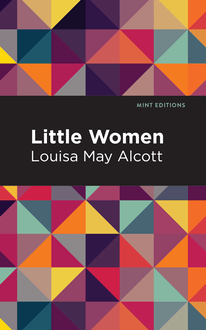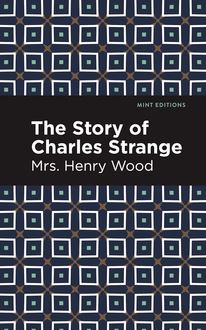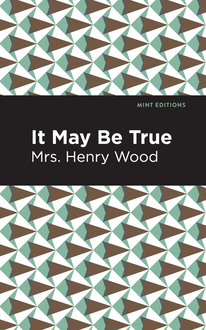-
 Univers
Univers
-
 Ebooks
Ebooks
-
 Livres audio
Livres audio
-
 Presse
Presse
-
 Podcasts
Podcasts
-
 BD
BD
-
 Documents
Documents
-
- Cours
- Révisions
- Ressources pédagogiques
- Sciences de l’éducation
- Manuels scolaires
- Langues
- Travaux de classe
- Annales de BEP
- Etudes supérieures
- Maternelle et primaire
- Fiches de lecture
- Orientation scolaire
- Méthodologie
- Corrigés de devoir
- Annales d’examens et concours
- Annales du bac
- Annales du brevet
- Rapports de stage
La lecture à portée de main
Vous pourrez modifier la taille du texte de cet ouvrage
Découvre YouScribe en t'inscrivant gratuitement
Je m'inscrisDécouvre YouScribe en t'inscrivant gratuitement
Je m'inscrisEn savoir plus
Vous pourrez modifier la taille du texte de cet ouvrage
En savoir plus

Description
Oldtown Folks (1869) is a historical novel by Harriet Beecher Stowe. Although her career peaked with the publication of abolitionist novel Uncle Tom’s Cabin (1852), Stowe continued to work as a professional writer throughout her life. A tale of family, faith, and perseverance, Oldtown Folks displays her impressive imaginative range and admirable moral outlook while illuminating aspects of early American life that would otherwise be consigned to history. After the death of his father and brother, Horace Holyoke moves with his mother to Oldtown, Massachusetts to live with her family. Staying at the home of his grandfather Jacob Badger, a prominent townsperson and successful miller, Horace listens to the stories of local religious figures, workers, and businesspeople who gather in the Badger family kitchen. Meanwhile, Harry and Tina Percival—a young brother and sister abandoned by their father, a British soldier who fled to England after the war—arrive in Oldtown after escaping abuse at the hands of a foster family. Taken in by the Badgers, the siblings befriend Horace and slowly adjust to life in a loving home. One Easter, the children travel to Boston with the local minister’s wife to visit with the wealthy Madame Kittery, who takes an interest in Harry and Horace and promises them, should they do well in school, that she will pay for them both to attend Harvard. Strengthened by the love of their community, anchored by their extended or adopted families, the three children grow up in a nation brimming with hope and meaningful change. Exploring religion, philosophy, and the value of education, Stowe’s novel is a powerful portrait of postwar New England for children and adults alike. Followed three years later by Oldtown Fireside Stories (1872), Oldtown Folks is an underappreciated masterpiece from the author of Uncle Tom’s Cabin, the most influential American novel of the nineteenth century. With a beautifully designed cover and professionally typeset manuscript, this edition of Harriet Beecher Stowe’s Oldtown Folks is a classic of American children’s literature reimagined for modern readers.
Sujets
Informations
| Publié par | Mint Editions |
| Date de parution | 21 mai 2021 |
| Nombre de lectures | 0 |
| EAN13 | 9781513285054 |
| Langue | English |
| Poids de l'ouvrage | 2 Mo |
Informations légales : prix de location à la page 0,0550€. Cette information est donnée uniquement à titre indicatif conformément à la législation en vigueur.
Extrait
Oldtown Folks
Harriet Beecher Stowe
Oldtown Folks was first published in 1869.
This edition published by Mint Editions 2021.
ISBN 9781513280035 | E-ISBN 9781513285054
Published by Mint Editions ®
minteditionbooks.com
Publishing Director: Jennifer Newens
Design & Production: Rachel Lopez Metzger
Project Manager: Micaela Clark
Typesetting: Westchester Publishing Services
C ONTENTS P REFACE I. O LDTOWN AND THE M INISTER II. M Y F ATHER III. M Y G RANDMOTHER IV. T HE V ILLAGE D O -N OTHING V. T HE O LD M EETING -H OUSE VI. F IRE -L IGHT T ALKS IN M Y G RANDMOTHER’S K ITCHEN VII. O LD C RAB S MITH VIII. M ISS A SPHYXIA IX. H ARRY ’ S F IRST D AY ’ S W ORK X. M ISS A SPHYXIA ’ S S YSTEM XI. T HE C RISIS XII. T HE L ION ’ S M OUTH S HUT XIII. T HE E MPTY B IRD ’ S N EST XIV. T HE D AY IN F AIRY -L AND XV. T HE O LD M ANOR -H OUSE XVI. S AM L AWSON ’ S D ISCOVERIES XVII. T HE V ISIT TO THE H AUNTED H OUSE XVIII. T INA ’ S A DOPTION XIX. M ISS M EHITABLE’S L ETTER, AND THE R EPLY, G IVING F URTHER HINTS OF THE S TORY XX. M ISS A SPHYXIA G OES IN P URSUIT, AND M Y G RANDMOTHER G IVES H ER V IEWS ON E DUCATION XXI. W HAT IS TO B E D ONE WITH THE B OY ? XXII. D AILY L IVING IN O LDTOWN XXIII. W E T AKE A S TEP U P IN THE W ORLD XXIV. W E B EHOLD G RANDEUR XXV. E ASTER S UNDAY XXVI. W HAT “O UR F OLKS ” S AID AT O LDTOWN XXVII. H OW W E K EPT T HANKSGIVING AT O LDTOWN XXVIII. T HE R AID ON O LDTOWN, AND U NCLE F LIAKIM’S B RAVERY XXIX. M Y G RANDMOTHER ’ S B LUE B OOK XXX. W E B EGIN TO BE G ROWN -U P P EOPLE XXXI. W HAT S HALL W E D O W ITH T INA ? XXXII. T HE J OURNEY TO C LOUDLAND XXXIII. S CHOOL -L IFE IN C LOUDLAND XXXIV. O UR M INISTER IN C LOUDLAND XXXV. T HE R EVIVAL OF R ELIGION XXXVI. A FTER THE R EVIVAL XXXVII. T HE M INISTER ’ S W OOD -S PELL XXXVIII. E LLERY D AVENPORT XXXIX. L AST D AYS IN C LOUDLAND XL. W E E NTER C OLLEGE XLI. N IGHT T ALKS XLII. S PRING V ACATION AT O LDTOWN XLIII. W HAT O UR F OLKS T HOUGHT A BOUT I T XLIV. M ARRIAGE P REPARATIONS XLV. W EDDING B ELLS XLVI. W EDDING A FTER -T ALKS AT O LDTOWN XLVII. B EHIND THE C URTAIN XLVIII. T INA ’ S S OLUTION XLIX. W HAT C AME OF I T L. T HE L AST C HAPTER
P REFACE
G ENTLE R EADER ,
It is customary to omit prefaces. I beg you to make an exception in my particular case; I have something I really want to say. I have an object in this book, more than the mere telling of a story, and you can always judge of a book better if you compare it with the author’s object. My object is to interpret to the world the New England life and character in that particular time of its history which may be called the seminal period. I would endeavor to show you New England in its seed-bed , before the hot suns of modern progress had developed its sprouting germs into the great trees of to-day.
New England has been to these United States what the Dorian hive was to Greece. It has always been a capital country to emigrate from, and North, South, East, and West have been populated largely from New England, so that the seed-bed of New England was the seed-bed of this great American Republic, and of all that is likely to come of it.
New England people cannot be thus interpreted without calling into view many grave considerations and necessitating some serious thinking.
In doing this work, I have tried to make my mind as still and passive as a looking-glass, or a mountain lake, and then to give you merely the images reflected there, I desire that you should see the characteristic persons of those times, and hear them talk; and sometimes I have taken an author’s liberty of explaining their characters to you, and telling you why they talked and lived as they did.
My studies for this object have been Pre-Raphaelite,—taken from real characters, real scenes, and real incidents. And some of those things in the story which may appear most romantic and like fiction are simple renderings and applications of facts.
Any one who may be curious enough to consult Rev. Elias Nason’s book, called “Sir Charles Henry Frankland, or Boston in the Colonial Times,” will see there a full description of the old manor-house which in this story is called the Dench House. It was by that name I always heard it spoken of in my boyhood.
In portraying the various characters which I have introduced, I have tried to maintain the part simply of a sympathetic spectator. I propose neither to teach nor preach through them, any farther than any spectator of life is preached to by what he sees of the workings of human nature around him.
Though Calvinist, Arminian, High-Church Episcopalian, sceptic, and simple believer all speak in their turn, I merely listen, and endeavor to understand and faithfully represent the inner life of each. I myself am but the observer and reporter, seeing much, doubting much, questioning much, and believing with all my heart in only a very few things.
And so I take my leave of you.
H ORACE H OLYOKE
I
O LDTOWN AND THE M INISTER
I t has always been a favorite idea of mine, that there is so much of the human in every man, that the life of any one individual, however obscure, if really and vividly perceived in all its aspirations, struggles, failures, and successes, would command the interest of all others. This is my only apology for offering my life as an open page to the reading of the public.
Besides this, however, every individual is part and parcel of a great picture of the society in which he lives and acts, and his life cannot be painted without reproducing the picture of the world he lived in; and it has appeared to me that my life might recall the image and body of a period in New England most peculiar and most interesting, the impress of which is now rapidly fading away. I mean the ante-railroad times,—the period when our own hard, rocky, sterile New England was a sort of half Hebrew theocracy, half ultra-democratic republic of little villages, separated by a pathless ocean from all the civilization and refinement of the Old World, forgotten and unnoticed, and yet burning like live coals under this obscurity with all the fervid activity of an intense, newly kindled, peculiar, and individual life.
My early life lies in one of these quiet little villages,—that of Oldtown, in Massachusetts. It was as pretty a village as ever laid down on the banks of a tranquil river. The stream was one of those limpid children of the mountains, whose brown, clear waters ripple with a soft yellow light over many-colored pebbles, now brawling and babbling on rocky bottoms, dashing hither and thither in tiny cascades, throwing white spray over green mossed rocks, and then again sweeping silently, with many a winding curve, through soft green meadows, nursing on its bosom troops of water-lilies, and bordering its banks with blue and white violets, snow-flaked meadow-sweet, and wild iris. Hither and thither, in the fertile tracts of meadow or upland through which this little stream wound, were some two dozen farm-houses, hid in green hollows, or perched on breezy hill-tops; while close alongside of the river, at its widest and deepest part, ran one rustic street, thickly carpeted with short velvet green grass, where stood the presiding buildings of the village.
First among these was the motherly meeting-house, with its tall white spire, its ample court of sheds and stalls for the shelter of the horses and the various farm-wagons which came in to Sunday services. There was also the school-house, the Academy, and Israel Scran’s store, where everything was sold, from hoe-handles up to cambric needles, where the post-office was kept, and where was a general exchange of news, as the different farm-wagons stood hitched around the door, and their owners spent a leisure moment in discussing politics or theology from the top of codfish or mackerel barrels, while their wives and daughters were shopping among the dress goods and ribbons, on the other side of the store. Next to the store was the tavern,—with a tall signpost which used to creak and flap in the summer winds, with a leisurely, rich, easy sort of note of invitation,—a broad veranda in front, with benches,—an open tap-room, where great barrels of beer were kept on draft, and a bar where the various articles proscribed by the temperance society were in those days allowed an open and respectable standing. This tavern veranda and tap-room was another general exchange, not in those days held in the ill repute of such resorts now. The minister himself, in all the magnificence of his cocked hat and ample clerical wig, with his gold-headed cane in his hand, would sometimes step into the tap-room of a cold winter morning, and order a mug of flip from obsequious Amaziah the host, and, while he sipped it, would lecture with a severe gravity a few idle, ragged fellows who were spending too much time in those seductive precincts. The clergy in those days felt that they never preached temperance with so warm a fervor as between the comfortable sips of a beverage of whose temperate use they intended to be shining examples. The most vivid image of respectability and majesty which a little boy born in a Massachusetts village in those early days could form was the minister. In the little theocracy which the Pilgrims established in the wilderness, the ministry was the only order of nobility. They were the only privileged class, and their voice it was that decided ex cathedra on all questions both in Church and State, from the choice of a Governor to that of the district-school teacher.
Our minister, as I remember him, was one of the cleanest, most gentlemanly, most well bred of men,—never appearing without all the decorums of silk stockings, shining knee and shoe buckles, well-brushed shoes, immaculately powdered wig, out of which shone his clear, calm, serious face, like the moon out of a fleecy cloud.
Oldtown was originally an Indian town, and one of the most numerous and powerful of the Indian tribes had pos
-
 Univers
Univers
-
 Ebooks
Ebooks
-
 Livres audio
Livres audio
-
 Presse
Presse
-
 Podcasts
Podcasts
-
 BD
BD
-
 Documents
Documents
-
Jeunesse
-
Littérature
-
Ressources professionnelles
-
Santé et bien-être
-
Savoirs
-
Education
-
Loisirs et hobbies
-
Art, musique et cinéma
-
Actualité et débat de société
-
Jeunesse
-
Littérature
-
Ressources professionnelles
-
Santé et bien-être
-
Savoirs
-
Education
-
Loisirs et hobbies
-
Art, musique et cinéma
-
Actualité et débat de société
-
Actualités
-
Lifestyle
-
Presse jeunesse
-
Presse professionnelle
-
Pratique
-
Presse sportive
-
Presse internationale
-
Culture & Médias
-
Action et Aventures
-
Science-fiction et Fantasy
-
Société
-
Jeunesse
-
Littérature
-
Ressources professionnelles
-
Santé et bien-être
-
Savoirs
-
Education
-
Loisirs et hobbies
-
Art, musique et cinéma
-
Actualité et débat de société
- Cours
- Révisions
- Ressources pédagogiques
- Sciences de l’éducation
- Manuels scolaires
- Langues
- Travaux de classe
- Annales de BEP
- Etudes supérieures
- Maternelle et primaire
- Fiches de lecture
- Orientation scolaire
- Méthodologie
- Corrigés de devoir
- Annales d’examens et concours
- Annales du bac
- Annales du brevet
- Rapports de stage














